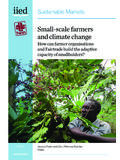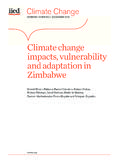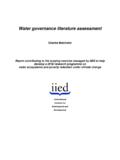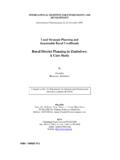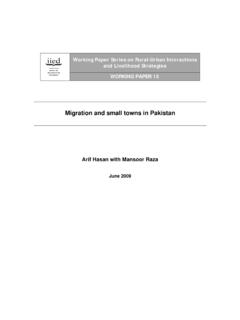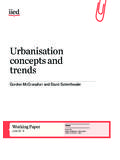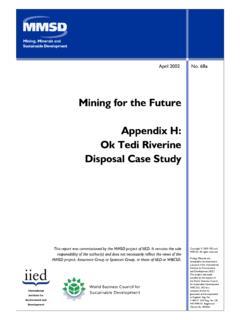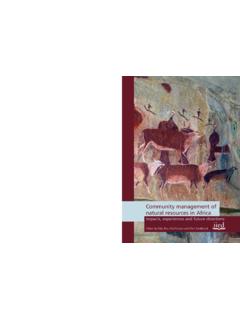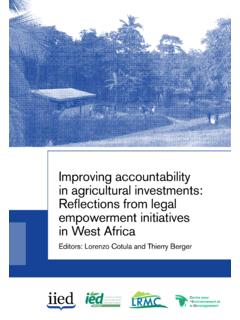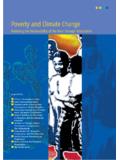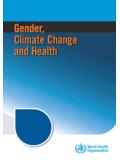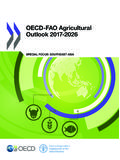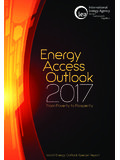Transcription of Urban informality and building a more inclusive, …
1 Working PaperDecember 2014 Urban environmentsKeywords: climate resilience, green economy, informal economy, inclusive , Urban developmentUrban informality and building a more inclusive , resilient and green economyDonald Brown, Gordon McGranahan and David DodmanInternational Institute for Environment and Development 80-86 Gray s Inn Road, London WC1X 8NH, UK Tel: +44 (0)20 3463 7399 Fax: +44 (0)20 3514 9055 email: @iied more publications at the authorsDonald Brown: Consultant. Gordon McGranahan (corresponding author): Principal Researcher, Human Settlements Group, IIED.
2 Email Dodman: Senior Researcher, Human Settlements and climate Change authors would like to thank Emily Benson, Anna Walnycki and Diana Mitlin for comments on an earlier version of this by IIED s Human Settlements Group The Human Settlements Group works to reduce poverty and improve health and housing conditions in the Urban centres of Africa, Asia and Latin America. It seeks to combine this with promoting good governance and more ecologically sustainable patterns of Urban development and rural- Urban by IIED, December 2014 Donald Brown, Gordon McGranahan and David Dodman.
3 2014. Urban informality and building a more inclusive , resilient and green economy. IIED Working Paper. IIED, S B N 9 78 -1-78 4 31-124 -7 Printed on recycled paper with vegetable-based WorkIn G PAPErThe green economy and climate resilience agendas are widely promoted as solutions to 21st century challenges facing sustainable development. As the world continues to urbanise, the role of cities in promoting these agendas is increasingly recognised. Yet, the informal economy which accommodates the majority of non-agricultural employment in low- and middle-income countries is seldom considered in the transition to a greener, more resilient economy.
4 This paper aims to provoke discussions around two main questions: What is the role of the Urban informal economy in this transition? And, how can Urban informal enterprises and their workers contribute to achieving economies that are not only greener and more resilient, but also more inclusive ?ContentsSummary 41 Introduction The Urban green economy Urban climate change resilience outline of the paper 72 Trends in the informal economy Growth and the informal economy Traditional schools of thought on the informal economy 143 Key features of the Urban informal economy Continuum of economic relations Segmentation and differentiation Legality and semi-legalities Exclusion and dispossession 274 Governance
5 Perspectives on the Urban informal economy Pro-poor Urban planning Collective organisation 315 Conclusions: The Urban informal economy and achieving greener, more resilient and inclusive economies relevant generalisations about Urban informality Priority areas for understanding the informal economy Emerging action-oriented priorities 35 References 37 Related reading 43 Acronyms 43 3 Urban informality and building a more inclusive .
6 Resilient and green economy4 the most part, this working paper takes it as given that the world s economies need to become more equitable, climate resilient and green. The extent to which economies actually make the needed transition will depend heavily on what happens in cities. The persistent growth of the Urban informal economy in many parts of the world raises questions about how this transition can be achieved. A conventional regulatory or investment-led approach, which ignores the informal economy, is unlikely to be sufficient or even appropriate. It is becoming increasingly clear that successful attempts to achieve more climate resilient and green economies will need to be grounded in a sound understanding of the informal economy, especially if such efforts are to be inclusive , and to benefit the economically disadvantaged and insecure.
7 Much of the early work on informality in the 1970s and 1980s emphasised the importance of taking account of the Urban informal economy, but it was still widely assumed that it was a temporary phenomenon characteristic of low-income economies, which would decline with growth and modernisation. Instead it has expanded. This has been in part the result of the uneven pressures put on the economy by globalisation and structural adjustment. These pressures have restricted the growth of the more regulated sectors of the economy, and indirectly favoured the informal economy, though not necessarily those who work within it.
8 Very different interpretations of the informal economy and its role have emerged. Some extol the virtues of those operating in the informal economy, and argue that their property rights need to be formalised, while the regulatory burdens that push them into informality need to be reduced. others point to the exploitation of informal workers and the harm resulting from the failure to adhere to acceptable standards. Still others focus on the complex relations between the informal and formal sectors, and point to the tendency for powerful formal enterprises to shift certain components of the supply chain into the informal sector to avoid regulation.
9 At times, partial interpretations of the informal sector are taken to represent the whole. Thus they become reminiscent of the blind men interpreting an elephant through different body parts (tail, tusk, trunk, etc): Each in his own opinion exceeding stiff and strong, though each was partly in the right and all were in the wrong. As with an elephant, it is important to recognise that the informal economy is made up of very diverse parts, including those that are green (eg waste picking) and those that are environmentally hazardous (eg lead battery reconditioning). Understanding these parts and the ways in which they may link up with the formal sector (eg through outsourcing) has important implications for the transition to a more inclusive , green and resilient gender dimensions of the informal economy amplify the importance of well-informed engagements that increase economic inclusion, as well as contributing to green and climate resilience goals.
10 Women are found disproportionately in the informal economy, and especially in domestic employment and those parts of the informal economy located in and around informal settlements. Partly as a result, women are more prevalent in the lower paid segments of the informal economy, and if unpaid care work were included by conventional statistical definitions, there would be an even greater preponderance of women. organisations like the Self Employed Women s Association (SEWA) of India and the international research and policy network of Women in Informal Employment Globalizing and organizing (WIEGo) help to provide a more effective basis for engaging with women in the informal sector and addressing the gender issues that arise.
